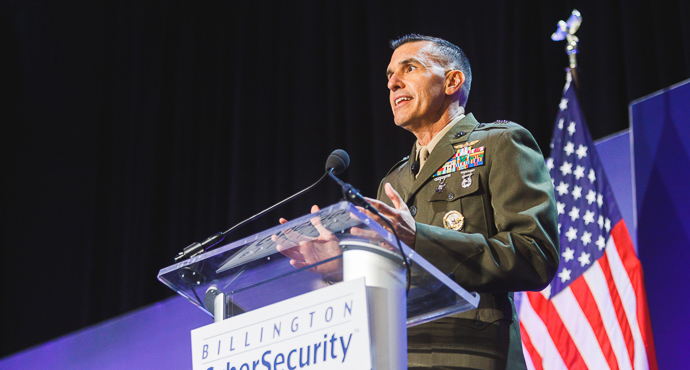
Warfighting in the fifth domain.
Major General Dennis Crall, US Marine Corps, presently serving as Deputy Principal Cyber Advisor and Senior Military Advisor for Cyber Policy in the Department of Defense, framed military cyber policy thusly: "This is all about outcomes." He offered three salient considerations for US military cyber policy:
First, "Lethality." This has three aspects: getting the right authorities (and these need to be not only the right ones to authorize sound operations, but they also need to be "deep enough" to enable forethought and anticipation), processes (which need to be repeatable, and to enable operators to use the authorities they've been given). In the context of process, General Crall quoted fellow Marine and former Secretary of Defense General Mattis, one of whose dicta is “When good people meet bad process, bad process wins.” And finally, of course, capabilities (a trained force with the tools necessary to accomplish a mission).
We should note that General Crall didn’t discuss actual lethality. His usage seemed more metaphorical than literal. It would, our reporters thought, be a mistake to have heard him advocating a general shift of cyber activity toward killing. “Effectiveness,” might be a useful gloss on what he called “lethality.”
Second, "Partnerships." Such partnerships, General Crall said, are both domestic (where partners often have authorities the military lacks) and international (where allies cooperate to share information within a framework that affords a common level of protection).
Finally, "Reform." At bottom, General Crall saw this as a commitment to keeping faith and trust by applying scarce resources in the most effective and affordable ways possible.
Perhaps the most interesting point General Crall made pertained to authorities. He said, early in his talk, that he was confident that military cyber operators had received the authorities they needed to be effective. When asked for clarification during the question period, he noted that the details were such that they couldn’t be gone into in an open forum like the Summit, but he said that he was confident that the authorities were well-suited to the mission.
